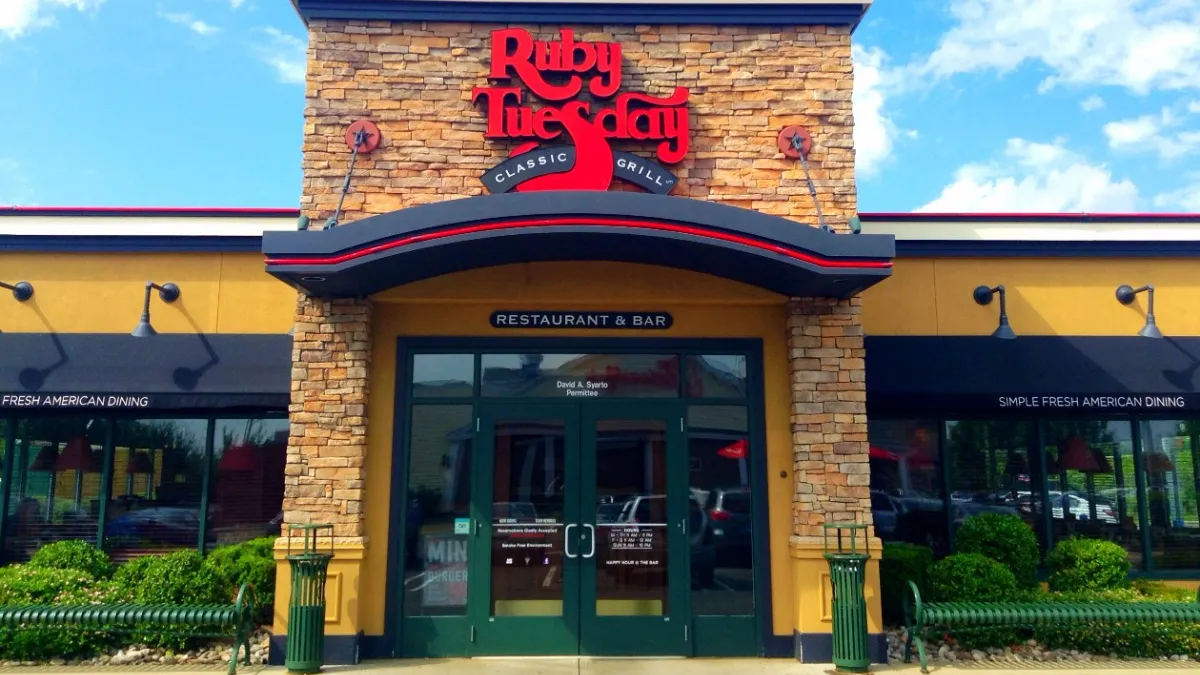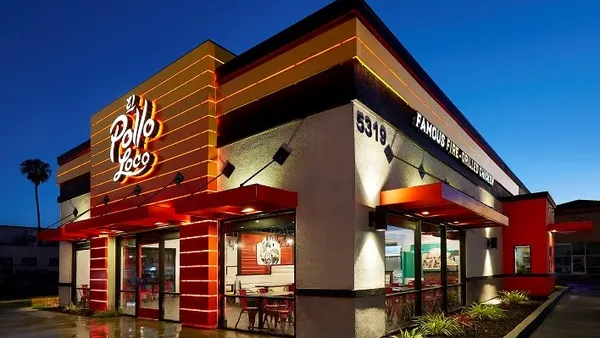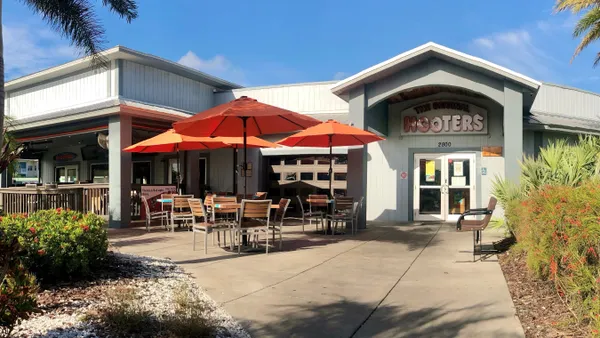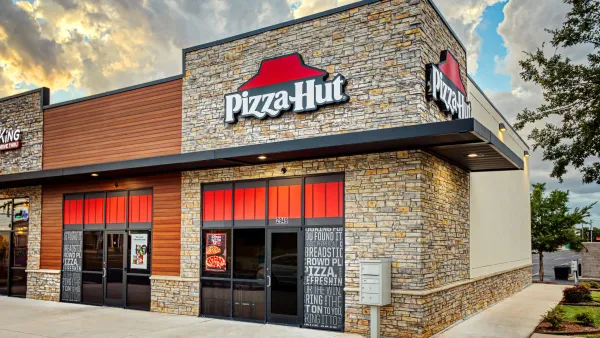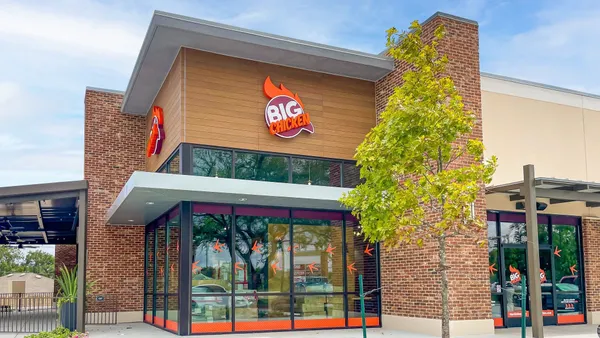Dive Brief:
- On Friday, the U.S. Bankruptcy Court for the District of Delaware approved bidding procedures for the sale of Ruby Tuesday by RTI Holdings, the casual dining chain's parent company. This allows the company to seek a sale, according to court filings.
- RTI Holdings has until Dec. 10 to pick a stalking horse and until Dec. 14 to file an asset purchase agreement. A qualified bid must be submitted by Jan. 14. If one or more qualified bids are received, an auction will be held no later than Jan. 19.
- If successful, Ruby Tuesday would join a growing list of companies bought out of bankruptcy since the start of the pandemic, which included Le Pain Quotidien U.S., Friendly's and Matchbox Food Group.
Dive Insight:
Bankrupt companies are increasingly sought out by investors of late, especially if the brand has the potential to turn into a growth opportunity. NPC International, for example, is in the process of selling its assets, which include 1,300 Pizza Hut and Wendy's units, and has accrued over two dozen bids. It gained a stalking horse bidder in Flynn Restaurant Group, but Wendy's has yet to approve of the sale — submitting its own bid last week.
The sales process is likely to go a lot smoother for RTI Holdings, which said in its filing that potential bidders already include Goldman Sachs Specialty Lending Group and TCW Direct Lending, both of which are already RTI lenders. Selling itself to one or both lenders would help it pay down $56.1 million in debt, most of which is owed to these two lenders, according to Restaurant Business.
Ruby Tuesday has been looking into several ways to pay down its debt, and has already received a two-month rent deferral worth $5.5 million after it said it would provide landlords a cut of a $22.5 million retirement plan trust fund that was part of a top hat deferred compensation program. After it emerges from bankruptcy, the company expects to have between 175 to 200 units, which would also help decrease operating costs.
But not all bids have been successful for bankrupt casual dining chains. California Pizza Kitchen wasn't able to find a buyer after it filed for bankruptcy in July. CEC Entertainment also ended its effort to sell its assets in October and ended up securing $200 million in debtor-in-possession financing.



